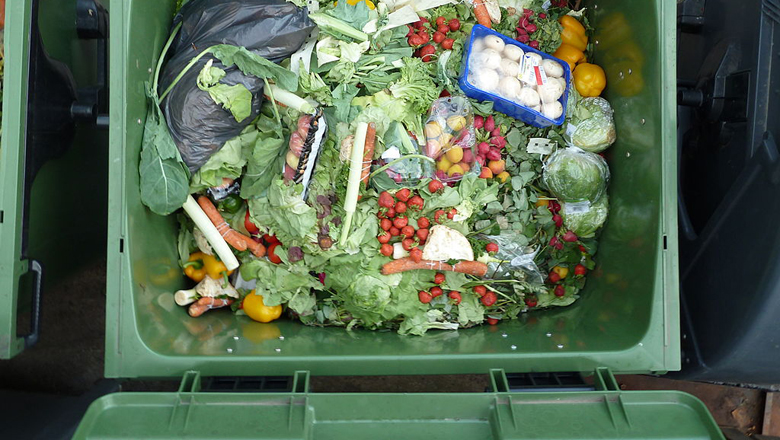
(Foerster/Creative Commons)

(Foerster/Creative Commons)
Imagine that you’re planning a dinner party. You’ve invited everyone, and are lenient with invitations, plus-ones, and friends-of-friends. Your friends tell their friends, who tell their families, who tell their neighbors, and eventually, the whole town’s showing up at your door tomorrow evening. And it’s a hungry crowd, too — so what do you do? How do you find enough food to host a growing number of guests? Or perhaps, an entire planet?
By 2050 there will be 9.6 billion mouths to feed. Providing food to nourish this ever-growing population presents a daunting challenge — to address this critical issue, we will have to produce more food in the next 50 years than we have in the past 10,000. Experts say that we will have to produce 69% more calories to feed this many people.
There are solutions to this global food challenge. One is around food production. Much emphasis is placed onto the production of food as a solution to the challenge, but we face a number of environmental and economic constraints on global food production. Currently, the limited price and availability of fertile land and energy have proved to be problematic for food security strategy. And it may take more than a few decades to transition to a system that embraces more sustainable, efficient farming practices.
Maybe the solution isn’t food production. Perhaps we can do more around food conservation. Some experts argue we produce enough food as it is, we just don’t distribute it equitably and we waste a lot of it. Most Americans do not realize we have a food waste problem. It is estimated that we waste 25% to 40% of the food produced globally. Instead of putting resources into growing our food, why don’t we try to see how we can more efficiently consume it?
This blog is part one of my six-part series called Waste Not Wednesday, which will provide an overview of how food waste is a critical issue in food sustainability. I will examine how people and organizations are developing solutions to food waste through community and corporate initiatives.
I’ll cover how a university strives to reduce its “foodprints” through composting programs, as Frank Fritz did with the Washington ComPost at GW.
I’ll introduce innovative entrepreneurs like Elizabeth Bennett of Fruitcycle, and Philip Wong and Ann Yang of Misfit Juicery, who whip up delicious snacks and beverages using re-routed ugly produce that was once bound for the landfills.
Lastly, I’ll profile DC Central Kitchen, a food-recycling nonprofit revolutionizing the soup kitchen by cooking nutritious meals with surplus foods. And I’ll even try my hand at cooking a meal in my dorm kitchen using “ugly produce.”
I hope to inspire my readers to realize how much can be done to address food waste in your own kitchen, dorm, campus and community.
—
Waste Not Wednesday is a community engagement project created by Ayse Muratoglu, a 2015-2016 Emerging Leader for Food Security for the Land O’Lakes Global Food Challenge Program. The yearlong program takes 10 college sophomores who will work with Land O’Lakes experts to explore issues of food security, and find ways to feed the world. To learn more about the Global Food Challenge, join the conversation at http://foodchallenge.landolakesinc.com/